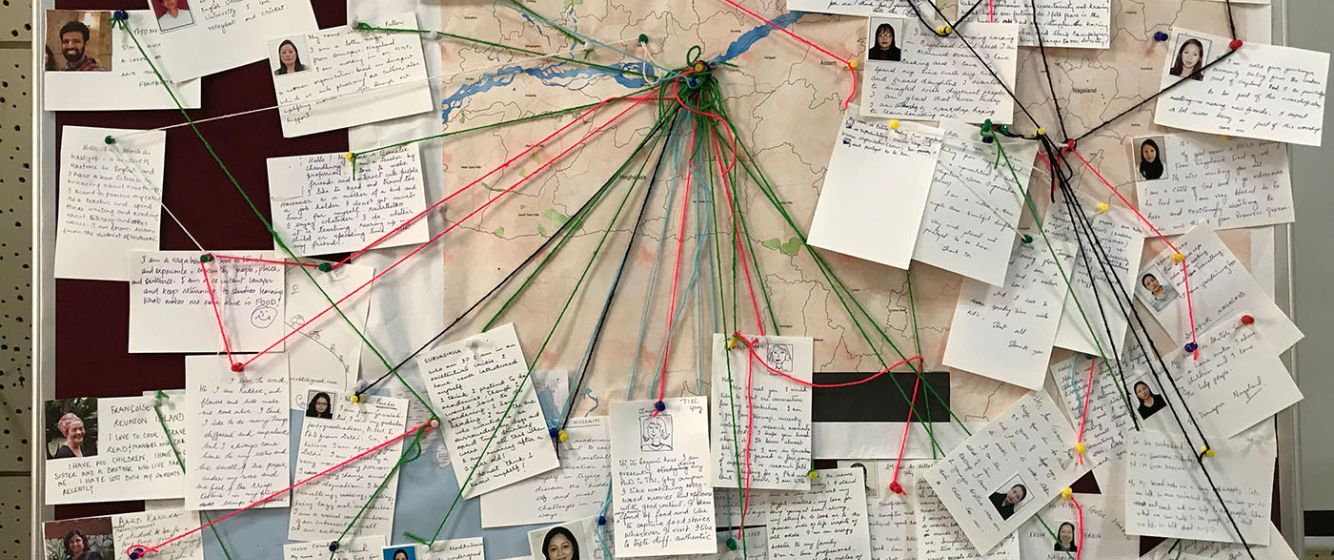
ICAS 11: Panel: Unlocking the Wor(l)d: Symbol, Sound and Sensation in Post-disciplinary Methodologies
The 11th International Convention of Asia Scholars (ICAS) is the most inclusive international gathering in the field of Asian Studies. ICAS attracts participants from over 75 countries to engage in global dialogues on Asia that transcend boundaries between academic disciplines and geographic areas. The meeting place for the eleventh edition of ICAS is Leiden, the Netherlands. The historic city of Leiden is home to one of the oldest universities, Leiden University, and several of the most renowned Asia research centers. Leiden University will be the main host of ICAS 11, partnering with the city, research institutions and museums, who share equally rich Asian and global connections.
Events will include: panels and roundtable discussions, keynote speeches, craft exhibitions, a film and documentary festival and the second Asian Studies Book Fair. With all these activities ICAS is contributing to the decentering of Asian Studies by including more ‘Asian voices’ while successfully convening a global space in which Asia scholars and social and cultural actors from the whole world can directly interact. Participate at ICAS 11 and enjoy the multitude of networking opportunities, possibilities to share your research and to meet with publishers.
ICAS 11 will be held at the Law Faculty Building and Lipsius Building of Leiden University from 16-19 July 2019. It will be organized by the International Institute for Asian Studies, Leiden University and GIS Asie (French Academic Network for Asian Studies). More than 2000 Asia specialists and representatives of civil society are expected to attend.
Location: Kamerlingh Onnes B0.41
This panel seeks to demonstrate the non-textual, embodied and performative aspect of language in the context of what we are calling post-disciplinary methodologies of research and analysis. Our point of departure is the symbol, sound and sensation that envelope the word in its context of use. How do humans speak with fish and think about fish in Eastern Indonesian seascapes? What can we learn from the Bengali diaspora’s recitations and singing sessions on the Andaman Islands? Can humor be used as a crucial prism to understand the sensorial associations of words in texts from Asia and Africa? How do old tapes travel and symbolize ever-changing heritage in Gao, Mali? How have object-lessons been used to sensorialize abstract words, concepts, and numbers in colonial pedagogies in South India? What do oral aspects of Old Khmer epigraphs in Cambodia tell us about language practices?
This panel brings scholars in dialogue around non-textual forms of language and the fluidity of oral linguistic practices to rethink disciplinary bound approaches to the word and language in general. Its design as a performative panel allows us to navigate through the nuances of reading, teaching, singing, narrating, announcing, reciting and chanting to demonstrate language as embodied practice and vehicle of knowledge transmission. As a further step, we explore the pedagogical potential of language-mediated practices towards decolonising academic practice.
During the first panel session, we present a selection of ethnographic and archival vignettes that illustrate the fluidity of language, language contact, and language practices from a variety of disciplinary approaches (such as history, linguistics, anthropology, philology), accumulating into a more holistic understanding of islands, marine environments, ancient texts, diaspora, and the classroom itself. The second panel session consists of a discussion with the audience to assess ongoing efforts to produce a Humanities across Borders syllabus draft, a reflexive article, and an illuminated video.
Panel Convenor(s)
Aarti Kawlra, International Institute for Asian Studies (IIAS), Netherlands
Panel Chair(s)
Elena Burgos-Martinez, Leiden University, Netherlands
Panel Discussant(s)
Kunthea Chhom Apsara Authority, Siem Reap, Cambodia
Presenters and Presentations:
14:45 - 16:30: Reciting history, singing identity : Sonic atmospheres of place and community on the Andaman Islands
Carola Lorea – National University of Singapore
14:45 - 16:30: Talking with and about fish: Group fishing, sound and knowledge in small Eastern Indonesian islands.
Elena Burgos-Martinez – Leiden University
14:45 - 16:30: Floating or pinned: Transistor, cassette recorder and the traveling wor(l)d
Mohomodou Houssouba – Center for African Studies, University of Basel
14:45 - 16:30: Taking humour seriously: Foregrounding the sensorial associations of words in non-western texts
Tom Hoogervorst – Royal Netherlands Institute of Southeast Asian & Caribbean Studies (KITLV)
14:45 - 16:30: Guns and the Gospel : Mediating Life and Liberty in the Naga Hills
Rakhee K. Moral – Cotton University
Leiden University
Kamerlingh Onnes B0.41
2311 EZ Leiden
Netherlands